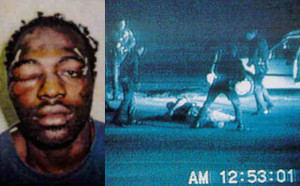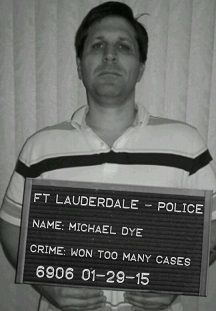
Trust the police to turn in their videos.
Florida Senate Bill 248 | Recording Law Enforcement Activities
The “Police and Citizen Protection Act,” also known as, Florida Senate Bill 248 was introduced on January 7, 2015 by Senator Christopher Smith of Fort Lauderdale, Florida. If passed, the bill would require all law enforcement officers assigned “primarily” to patrol duties to be equipped with Promnico body cameras. The bill would also exempt the recordings from Florida Statute 934.03 which, amongst other things, regulates interception of oral communications.
Interception and Disclosure of Certain Communications
Florida is a two party state with regard to recording oral communications. What that means is that all parties involved in a conversation must give consent to recording the conversation. Police officers in Florida have charged people with violations of 934.03 for recording police activity without the consent of the police officer. I do not believe that a specific additional exemption is necessary because video taping by law enforcement for the purposes of an investigation is already exempt from the interception and disclosure statute.
In theory, both law enforcement and citizens are protected by video taping police citizen encounters. Senator Smith recognizes this and aptly titled the bill the “Police and Citizen Protection Act.” In theory, the police are protected from false allegations of misconduct and the citizen has access the evidence needed to prove misconduct. A good police officer doesn’t have a reason to be afraid of cameras. This bill is based on the assumption that all police officers are honest and will not manipulate the body camera in order to cover up any misconduct. If all cops were good, this bill would accomplish its purpose. So why do we need this bill in the first place? THAT’S RIGHT! BAD COPS! This bill relies on the the honesty and integrity of the dishonest individuals that it targets.
Theory vs Reality
As a criminal defense attorney, there are a lot of times when I want to see a video from a police officer’s in car camera. The video doesn’t lie. I am able to obtain the video without incident in an overwhelming amount of the cases when I request it. However, there have also been many occasions when I could not get a video. It is pretty easy to tell ahead of time when you are not going to be able to get a video. Unexplained bumps and bruises. A narrative of a driving patter that defies the laws of physics. Many times video cameras do not function correctly when a defendant consents to a search. The disappearance of video tape wherein the defendant allegedly consents to the search of a vehicle, which he knows is loaded down with an enormous amount of dope, is a mysterious phenomena that occurs across the nation. Another strange phenomena is that cameras malfunction at a higher rate in low income neighborhoods. I have heard ridiculous excuses including, but not limited to, “the video you requested is for internal affairs purposes only” or “we never received a copy of your request within the retention period so we deleted it” or “it is not required to provide to you in discovery and you don’t have the authority to subpoena it.”
Florida Senate Bill 248 recognizes the need for the police to record their activities for the protection of both the police and the public. However, it relies on the police to maintain those videos. This bill is a good start, but it does not go far enough. Additional issues that should be addressed include retention times, a defendant’s right to the video and safeguards to cut down or eliminate tampering.
Better Yet, a Simple Solution
Introduce a bill that makes it clear and unequivocal that citizens have an absolute right to film the police so long as it does not obstruct the officer(s) in carrying out his or their duties. Provide citizens the same exemption to Florida Statute 934.03 that is being provided to the police. By making it clear that citizens have the right to video tape officers, you are not placing all of your trust in the same people whose integrity is being called into question.
For more information, please contact us at:
The Law Offices of Michael A. Dye, PA, 1 E Broward Blvd #700, Fort Lauderdale, FL 33301 (954)990-0525 or
The Law Offices of Michael A. Dye, PA, 2 S Biscayne Blvd, Miami, FL 33131 (305)459-3286





